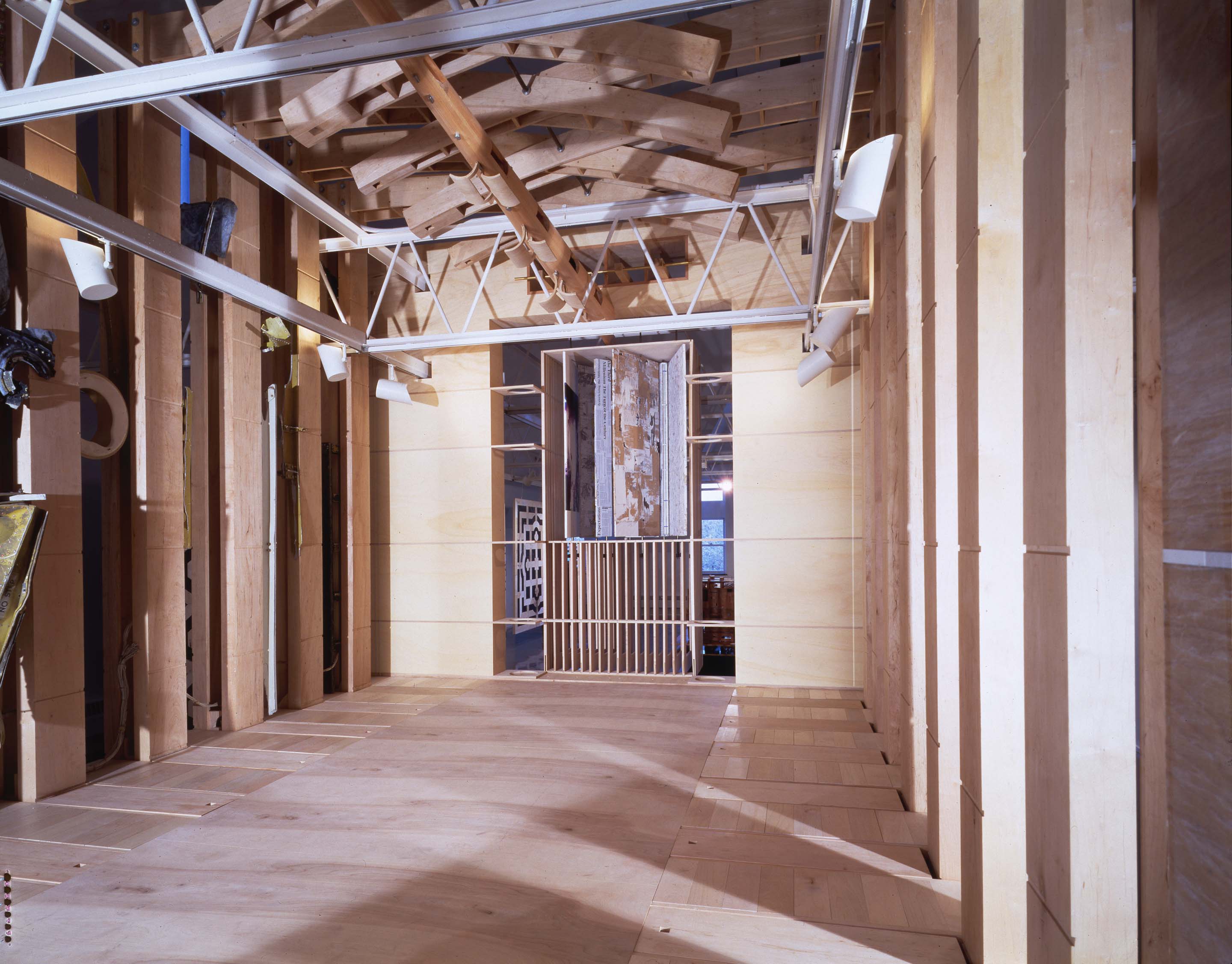- Ben Nicholson: Thinking the Unthinkable House

Ben Nicholson, Thinking the Unthinkable House, Installation View, 1996.

Ben Nicholson, Thinking the Unthinkable House, Installation View, 1996.

Ben Nicholson, Thinking the Unthinkable House, Installation View, 1996.

Ben Nicholson, Thinking the Unthinkable House, Installation View, 1996.

Ben Nicholson, Thinking the Unthinkable House, Installation View, 1996.

Ben Nicholson, Thinking the Unthinkable House, Installation View, 1996.

Ben Nicholson, Thinking the Unthinkable House, Installation View, 1996.

Ben Nicholson, Thinking the Unthinkable House, Installation View, 1996.

Ben Nicholson, Kleptoman Cell, 1996.

Ben Nicholson, Thinking the Unthinkable House, Installation View, 1996.

Ben Nicholson, B-52 Wall, 1996.

Ben Nicholson, Thinking the Unthinkable House, Installation View, 1996.

Ben Nicholson, Thinking the Unthinkable House, Installation View, 1996.
Ben Nicholson has never shared the presumption that the union of form and function constitutes the truth in architecture. Throughout his body of work, from his collages to his full-scale constructions, Nicholson has been multiplying rather than fixing meaning within architecture. For Nicholson, a house is not a home. It’s an appliance. In Nicholson’s most fully realized project, aptly dubbed Appliance House, form not only emphasizes but exaggerates function. One of the Appliance House’s six rooms, the Kleptoman Cell, has been constructed and will be on display at The Society. As a room whose sole function is to act as a container for items of the utmost value whether sentimental or practical, the Kleptoman Cell is an attempt to realize an architecture that reflects the fact that we are what we own.
While his projects are a pointed and poignant critique of a culture of industrial excess, Nicholson’s engagement with architecture can be considered theoretical only if it is first acknowledged as philosophical. If his logic and interest appear fragmentary, it is because they are situated within a very grand scope.
The entrance to Nicholson’s exhibition will be graced with the shredded remains of a B-52 bomber, a reminder that architecture must share the witness stand with destruction when testifying on behalf of civilization. But this logic is subverted as the icon of nuclear destruction has itself been violently dismantled. It is precisely this type of thinking, not to mention the multiplication and dispersion of meaning that allows Nicholson’s work to be discussed within the context of Deconstruction, an architectural movement which crystallized over the last fifteen years. But Nicholson’s work assumes rather than illustrates the premises of that movement. For, Nicholson, uncertainty within architecture is an invitation for forays into the imagination and a chance to seize upon unrealized possibilities.
This exhibition traveled, in part, to Canadian Center for Architecture, Montreal